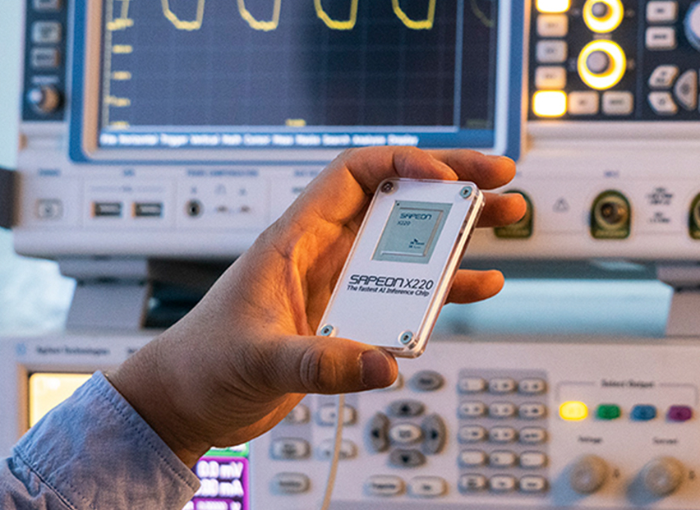SK Telecom and KT to compete in AI chipmaking
South Korea’s telecom giants gear up to transform into AI service providers
By Jan 03, 2022 (Gmt+09:00)
Samsung steps up AR race with advanced microdisplay for smart glasses


When in S. Korea, it’s a ritual: Foreigners make stops at CU, GS25, 7-Eleven


Seoul-backed K-beauty brands set to make global mark


NPS yet to schedule external manager selection; PE firms’ fundraising woes deepen


Maybe Happy Ending: A robot love story that rewrote Broadway playbook



SK Telecom Co. and KT Corp. are poised to go head to head in manufacturing chips for artificial intelligence.
The telecom giants will utilize their own AI semiconductor chips to provide artificial intelligence as a service (AIaaS). AI chips are highly advanced semiconductor chips that can parallel process large amounts of data.
SK Telecom will separate its AI semiconductor business and establish an independent corporation Tuesday, tentatively dubbed SAPEON Korea. The cost of the business transfer is widely expected to be 31.1 billion won ($26.1 million.) SAPEON Korea is scheduled to become an SK affiliate through the incorporation.
SK Telecom will announce a road map for this transition at CES 2022, scheduled to kick off in Las Vegas on Wednesday.
In November last year, SK Telecom unveiled SAPEON X220, which it claims can process artificial intelligence tasks faster and more efficiently than its competitors.
The company's next-generation chip SAPEON X330 is reportedly also in its final stages of implementation. The goal is to provide a comprehensive AI service using homegrown semiconductor chips.
SK Telecom President and CEO Ryu Young-sang said a year ago that he plans to grow the company as an AI and digital infrastructure firm and pointed to AI service as its main business.
In the initial stage, the areas of focus for using AI semiconductors will be intelligent video recognition, analysis and extraction. In addition to the SAPEON chips, the telecom company is also developing automated AI modeling tools dubbed Meta Runner, AI Camera and Machine Vision. SK Shielders, a digital healthcare and media business arm of SK Telecom, will use the pilot services.
KT is also looking to enter the AI semiconductor sector.
Last week, the company announced its plans to work with FADU, a fabless startup developing advanced flash storage technology, to unveil its own AI chips in 2023.
KT is betting on its Hyperscale AI computing (HAC) service, targeting companies that are developing AI services in the biotech, educational technology, and manufacturing sectors, among others. Its HAC allows companies to borrow graphics processing units (GPU) in a virtual environment, a must for developing AI services. Each client then returns and pays for a specified amount of GPUs after a certain period.
This is the first pay-by-usage AI infrastructure service in the country.
The long-term goal for KT is to create its own AI standard model and offer subscription-based AI solutions optimized by industry; for example, self-driving vehicles, finance, and the metaverse.
Both Korean telecom juggernauts expect comprehensive AI service to be the key to its survival.
“While growth in the communications industry has slowed since the adoption of 5G, AI service has huge potential for expansion,” an industry insider told The Korea Economic Daily.
Write to Seon Han-gyeol at always@hankyung.com
Jee Abbey Lee edited this article.
-

-
 ElectronicsNow, slim is in – and Samsung aims to be No. 1 with Galaxy S25 Edge
ElectronicsNow, slim is in – and Samsung aims to be No. 1 with Galaxy S25 EdgeMay 09, 2025 (Gmt+09:00)
-

-
 Electric vehiclesBYD’s Atto 3 overtakes Tesla’s Model Y as best-selling EV in South Korea
Electric vehiclesBYD’s Atto 3 overtakes Tesla’s Model Y as best-selling EV in South KoreaMay 09, 2025 (Gmt+09:00)
-



